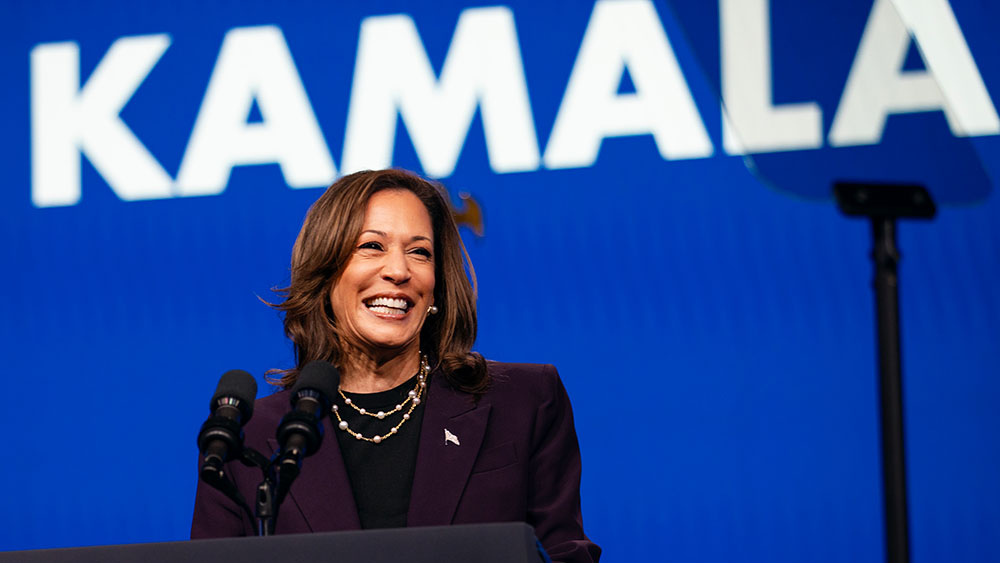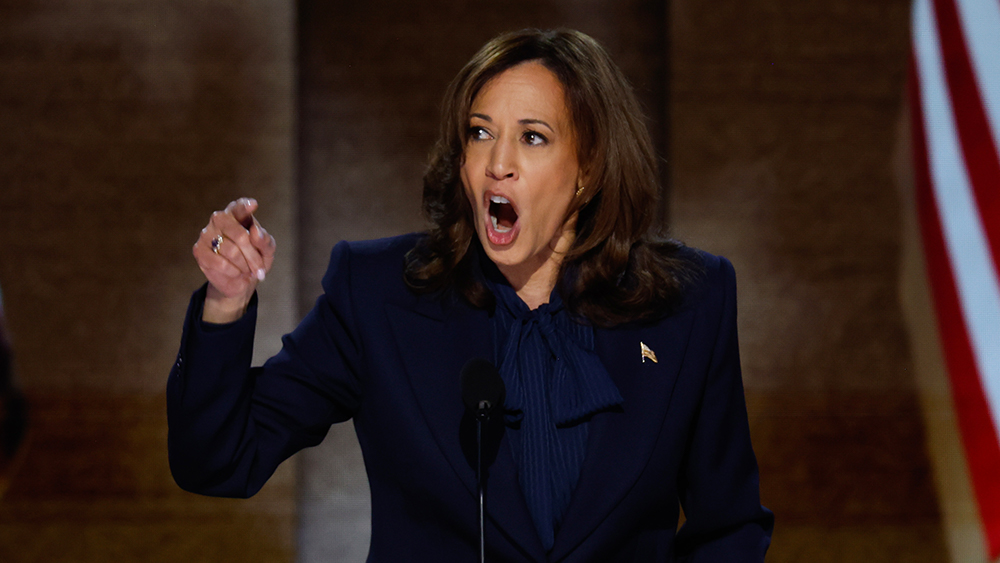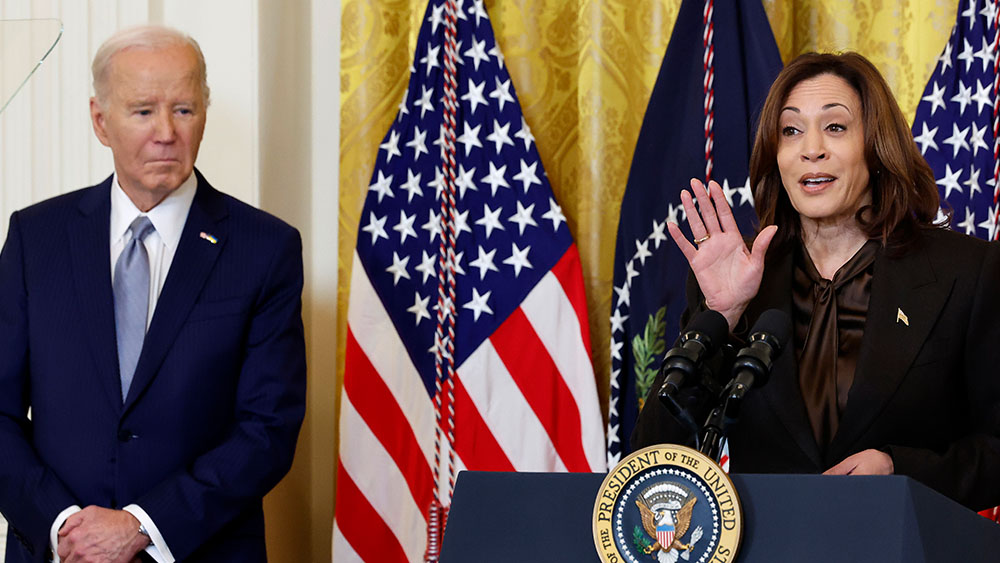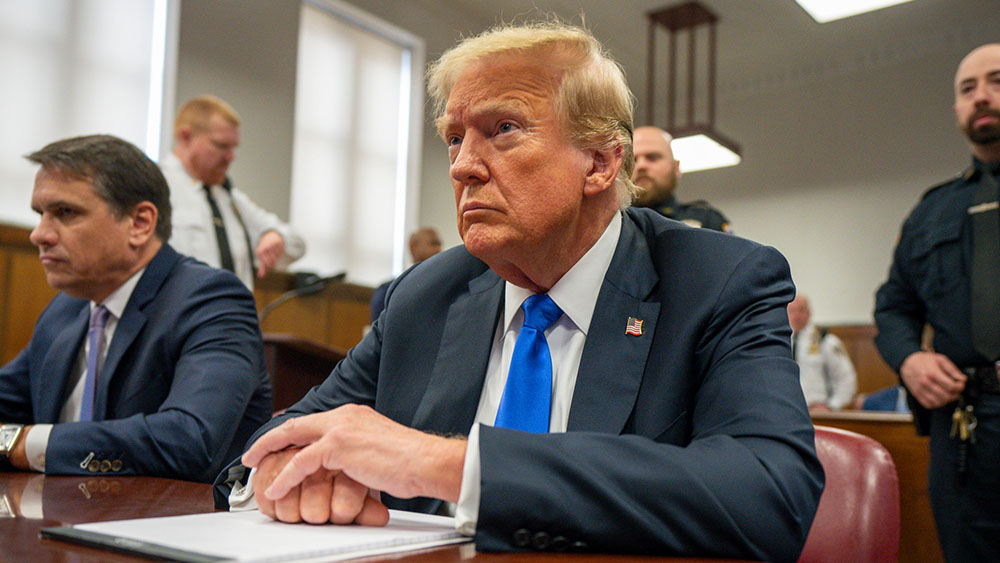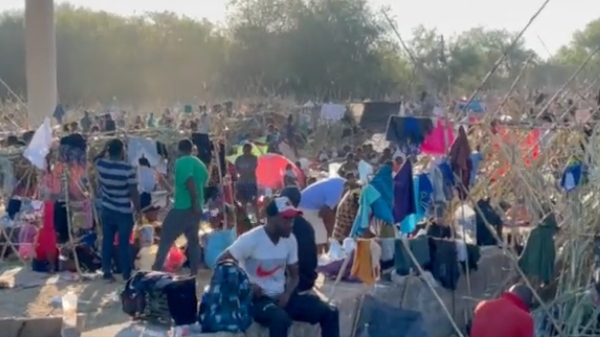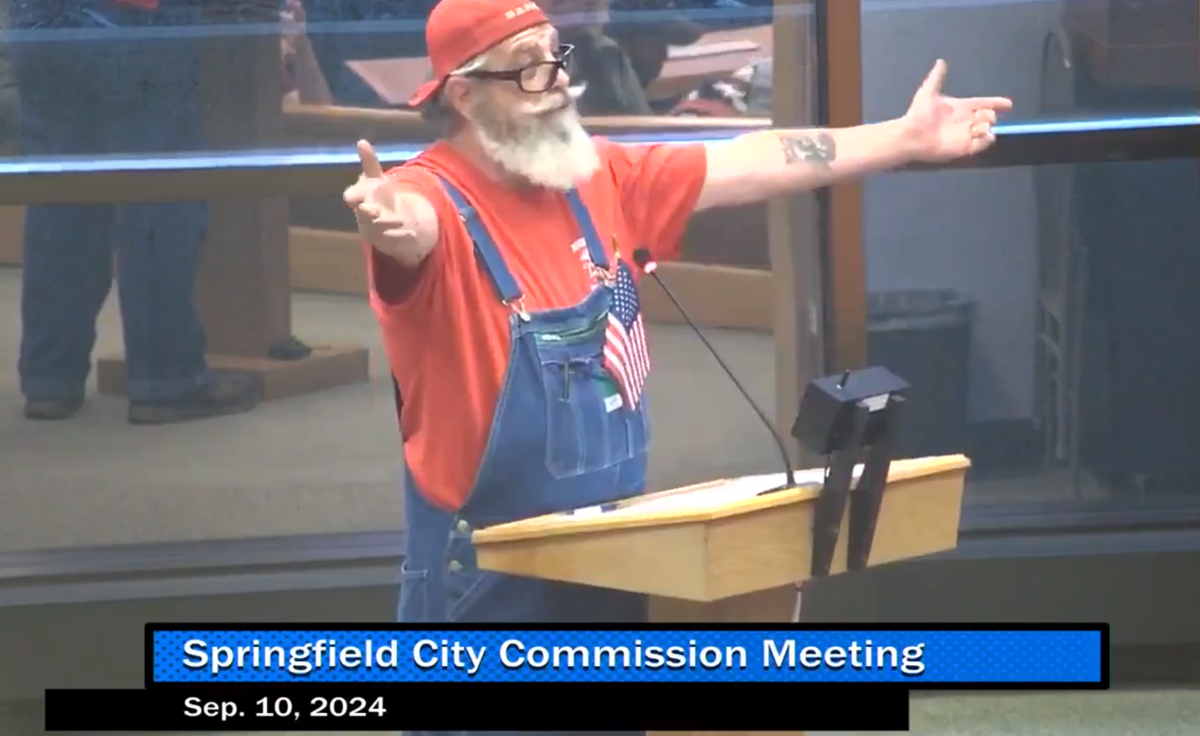VIDEO: Ecuador’s exiled ex-president Correa discusses the US lawfare agenda with The Grayzone
09/15/2024 / By News Editors
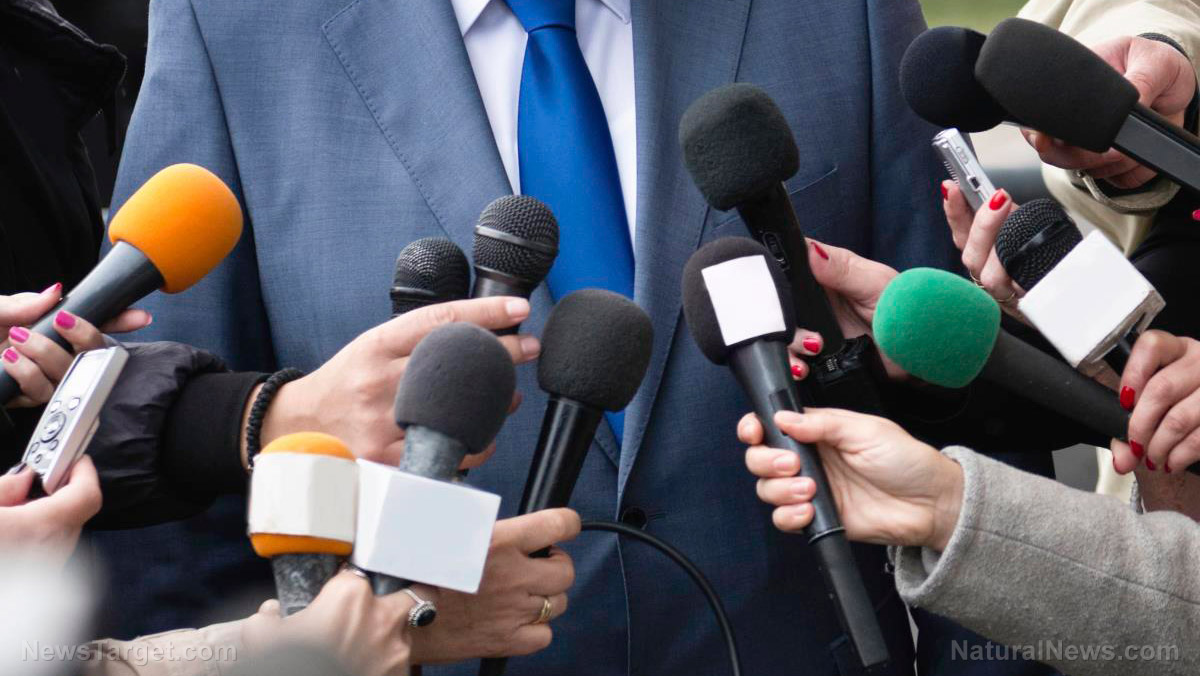
Former Ecuadorian President Rafael Correa sat down with The Grayzone’s Oscar Leon to discuss our recent report exposing the political manipulation of the country’s judicial system by attorney general Diana Salazar in favor of US state and corporate interests.
(Article republished from TheGrayzone.com)
A transcript of their conversation can be viewed after the video below:
Oscar Leon
Good morning, Mr. President. How are you?
Rafael Correa
Hey. A pleasure to see you. Thank you.
Oscar Leon
We released this report. I don’t know if you had a chance to look at it. Where we reveal some chats. That the prosecutor had, with Ronny Aliaga. In which many, uh, very interesting things are revealed. So maybe we can go in parts. What is your comment regarding possible lawfare in your case?
Rafael Correa
First, I want to thank The Grayzone, Max Blumenthal, and you for the extraordinary research, which couldn’t have been done by the national media. There is an obscene, politicized media shield protecting the prosecutor and working against us. This reality is often not understood in developed countries. This isn’t freedom of the press; it’s pure manipulation driven by political and economic interests.
Secondly, you have verified the authenticity of about 1,500 chats with Ronny and others, which exposes this woman’s complete lack of ethics and professionalism. She has leaked chats with at least four different people that can be verified. Wilman Terán, former president of the Judiciary, threatening him, manipulating verdicts and appointments. Also Maribel Barreno, a former friend and member of the Judiciary Council, as well as Anderson Boscan, a journalist.
This can be verified. She acts like that—passing on privileged information, exerting pressure, threatening, blackmailing, etc.
Thirdly, about lawfare in my case. For many years, there has been no rule of law in Ecuador. For much less than this, a major scandal would erupt in a developed country. And yet, this case is barely mentioned in the Ecuadorian press. Salazar remains in her position, doing as she pleases. It’s obviously fraudulent.
At her job interview, she scored the worst on the written exam. She is a very limited individual who can barely express herself, yet she received a perfect score on the oral test, and thus was appointed prosecutor, primarily to persecute us.
It was later discovered that her thesis was plagiarized. They brushed it off as ‘inexperience.’ The university claimed that a 40% plagiarism rate was incompetence, and the Constitutional Court prohibited any investigation into the matter. They even dismissed the president of a Citizen Participation Council for fulfilling his duty to oversee a probe into her fraud.
For the past eight years, there has been no rule of law, and the justice system is rotten. This is persecution. The main victims, almost exclusively, have been members of my Citizen Revolution party, myself included, but especially Jorge Glas, imprisoned in a high-security facility as if he were a dangerous criminal.
We witnessed the invasion of an embassy—a crime that not even the worst Latin American dictatorships committed. A political refugee was kidnapped, an act that blatantly violates articles 111 and 125 of our Comprehensive Penal Code. The prosecutor did nothing because, there is no rule of law.
Oscar Leon
At some point, those chats reveal that the Americans or the agencies or whoever was with her in that moment, they say they want your head, they say RC is rising in the pools.
The Citizen Revolution is rising at that moment, this is before they killed Villavicencio and the Americans do not want that because they know that if the Citizen Revolution wins, the bilateral treaties end there. So let’s talk for a second about those bilateral treaties. We also did a report on this and if you allow me, I’m going to ask you about it.
And in that report, a couple of things caught my attention in these bilateral treaties. The first was that it represented a very big contrast with the previous ten years, when we went from not having American influence, argumentatively, from when you were in power, to this moment, now you have the American military in Ecuador, you have total, eh, [carte blanche], they have total immunity if you want, and that is the one thing.
The other thing is that… In the law of the Treaty with Ecuador, [it’s called SB S3591], it specifically talks about Ecuador, it says that the United States is going to help Ecuador deal with “negative influences,” internal and external, with internal or external dangers.
Influences: Yes, it is the word they use, it is quite clear. It seems to me that those external influences would be Russia and China, and the internal influences would be the Citizen Revolution. And it seems to me that the anti-mining movement. What do you think about this?
Rafael Correa
None of this could have happened without not only the consent but the active involvement of the U.S. Embassy. Their participation was obvious and shameless.
The previous ambassador, who stayed longer than allowed—Michael Fitzpatrick—was like a new viceroy. He met weekly with Prosecutor Salazar, told political groups what to do or avoid, as seen in the chats. This couldn’t happen without at least U.S. consent.
This also happened with Lula da Silva, Cristina Fernández de Kirchner, Evo Morales. Like the Condor Plan of the 1970s, dictatorship coordination in Uruguay, Chile, Argentina wasn’t coincidence. It was coordinated from the North.
The lawfare, the judicialization of politics, is a U.S.-led plan. As shown at the start of your documentary, it’s cheaper to buy judges and prosecutors, co-opt and persecute political adversaries—those ‘negative internal influences’—than invade countries.
This is the new regional strategy to block progressivism and maintain the status quo. So, to answer your question: the brutal political persecution we’ve suffered in Ecuador, the blatant interference in justice, a corrupt and manipulative prosecutor like Diana Salazar—this could not have happened without at least the consent, if not the decisive intervention, of the United States.
Oscar Leon
Another point of concern is the interference in the elections. First, there was the complaint against Arauz, which eventually went nowhere.
Then, according to the chats, there was silence when she learned who had killed Villavicencio. Despite this, she allowed the Citizen Revolution movement, and specifically you, to be blamed. What are your thoughts on this? Where do you think this election is heading? Do you believe it will be fair?
Rafael Correa
We haven’t had fair elections for eight years. Talking about fair elections in Ecuador, where the press doesn’t inform but manipulates, is impossible. The press is the foundation of democracy. Jean-François Revel, a neoliberal patron saint, said it well: democracy without truth doesn’t exist, and without information, there is no democracy in Latin America.
In Ecuador, there’s no real information—just manipulation, especially now, where all limits and scruples have been lost.
[In contrast,] look at the spectacular report you’ve made. It’s very professional, taking four or five months to complete, and it’s been replicated by many international media outlets, as well as some important national ones.
The manipulation, the shielding, the concealment of information, and the promotion of completely false news to cause harm are shameless. We cannot call this democracy. There’s a completely [corrupt] press, a media mafia. It really is a media mafia that doesn’t inform but manipulates.
In addition to this, they’ve taken over all State institutions over the last eight years, destroyed the Rule of Law, and committed barbarities.
For example, in 2021, they suspended our political party just days before registering for an election. We had to register ourselves first on the ballot, instead of our usual fifth place. Later, they returned our spot to us after we won the trial, but by then we were already registered in first place for the election. We had to endure all of that, right?
Laws have also been changed to harm us, such as the method of assigning seats to prevent us from having a majority in the Assembly.
So, what we have in Ecuador is neither the Rule of Law—a fundamental aspect of democracy—nor democracy itself, because the press manipulates rather than informs, and democracy without information simply does not exist.
What we have, from time to time, are elections, but they are far from fair. Without truth, there can be no free elections. Only the truth will set us free.
Oscar Leon
This press narrative is notorious. We started the Lawfare series because we observed an attempt at lawfare against Donald Trump. Just before the elections, numerous cases were filed—37 charges from a single accusation.
In my opinion, these lawfare cases primarily target individuals with nationalist policies, even if their ideologies differ. When there’s a nationalist component, such situations often arise.
These corruption narratives are prevalent in general culture, which is why such a narrative has won the cultural battle and the elections, in my view. The right seems to be winning the cultural war.
The process of defaming you has been bolstered by corruption cases that did occur and were widely reported in the media. Those cases are then used to cast all members of your political movement in a negative light.
So, has there been any effort or learning within the ranks of the Citizen Revolution to prevent these issues? To address and change the negative image that has been established?
Rafael Correa
Are you Ecuadorian, Óscar?
Oscar Leon
Yes, sir. Ecuadorian – American.
Rafael Correa
With all due respect, none of that is true. How could there not be cases of corruption in ten years of government? Even in the Vatican, Pope Francis found instances of corruption—in Spain, in Germany. Yes, of course, there are cases of corruption. However, it’s different when a government tolerates corruption. They have based their accusations on isolated incidents that we ourselves reported.
All of those corrupt individuals are now our enemies, right? Carlos Pareja Yanuzzelli, Pedro Delgado, they are all enemies. At this moment, they support those who are persecuting us. Why is that? But they used them. For instance, [they say] “Carlos Pólit is Correa’s comptroller,” but the Comptroller’s Office is an independent function. Carlos Pólit was proposed by those political parties at the beginning of my government. It was a shortlist presented by Congress, but that’s how they manipulate everything.
Let’s look at the facts, not stories. I could also create a narrative about each case of corruption found in the United States and claim they are all corrupt. Check the Transparency International ranking. I found the country ranked 150th and left it at 120th. We were the country that improved the most in the ranking in all of Latin America.
Look at the data, we were the country that improved by 30 places. But even those surveys are subjective; they ask businessmen and such. Transparency International is influenced by the media. And during the Odebrecht case, we were in the spotlight because we had dropped to around 100th or 102nd place, then rose to 120th. We were the country with the greatest improvement in Latin America.
Let’s look at hard data. Look at the World Bank database. There, they conduct surveys with state contractors about bribery. Before our government, it was at 16%. Under our government, it went down to 1.6%, across the entire public sector: municipalities, prefectures, parish councils, and during the period with the largest investment in history. But that 1.6% means some corruption remained, and they latch onto that to create an entire narrative.
I won’t fall into that trap. I’m not arrogant, I’m objective. I won’t betray my conscience or the truth to make some act of contrition when we did very well. When we are honest people, when we’ve hired companies to audit our accounts and they found absolutely nothing, and every time they try to trace money, they find it’s theirs, not ours. Yet we are the ones expected to make an act of contrition. It’s like validating those who don’t have a case. That’s my first point of reflection.
The second point you mentioned is about the lawfare used against Trump. I don’t agree. I respect your opinion, but I don’t share that view. Lawfare is specifically used against the left, requiring media outlets in the hands of the right and a judicial system co-opted by elites or the U.S.
There are exceptions, of course, like Alan García in Peru, when there are internal conflicts among them, but that’s the exception, not the norm. In the U.S., lawfare didn’t succeed because there is still institutional integrity. Look at the Supreme Court; it seems Trump won unanimously, even with Democrat judges, because they don’t fall for these tricks.
In Latin America, particularly in Ecuador, judges are willing to go along with anything. Just a few weeks ago, for example, in the case of the embassy invasion and Jorge Glas’ arrest, the appeals court upheld it. The first-instance judge said it was illegal, illegitimate, and arbitrary. But the appeals court said it was legal, legitimate, and lawful. Do you know why?
Because they argued based on domestic law. There was an order for Jorge Glas’ imprisonment. There was a supposed state of emergency, which put an end to the guarantee of the inviolability of the domicile.
Yet under international law, they violated a fundamental legal principle. International treaties are above national laws, and they argued that invading an embassy was just like entering a regular home. They claimed that during a state of emergency, there is no inviolability of a home.
According to them, an embassy is just another house, which is absurd. And on that court sat the president of the National Court of Justice. You see the level we’ve sunk to. The matter is already settled, so there are other layers to this issue.
With all due respect, what happened to Trump is child’s play compared to what happens in Ecuador and Latin America—especially in Ecuador, which experts say has experienced the most lawfare. I can give you names, like Héctor Martínez who you could interview Spanish experts, for instance—who confirm that Ecuador has faced the worst of it.
Oscar Leon
It is remarkable, and several experts told me, that it is a country where the decline of a country with institutions, of a country with several institutions of control and social development, has been most marked. After Lenín Moreno came and persecuted, he persecuted the Alianza País movement at that time.
Several experts told me that it was at that time that the State weakened, in such a way that the cartels managed to enter. What do you think of that, of that persecution that there was, of the government and the policies, not only of the people?
Rafael Correa
“Hate led them to destroy everything. I mean, finally, okay, let them persecute us and build something new and better. But no, they destroyed everything. It feels like a Kafka novel—Metamorphosis, where Gregor Samsa suddenly woke up as a beetle, and everyone noticed him. Everything was different. It’s a nightmare. I haven’t seen anything like it.
I am an expert in development. I spent eight years in exile studying development and writing a book. I have not seen a case of such rapid and profound destruction of a country, in times of peace, without a blockade, and even more so in a democracy. Countries can be destroyed by blockades or war, but without those, this level of destruction is unprecedented.
I left the country as the second safest in Latin America, only surpassed by Chile, which has twice our per capita income. We were surely the safest in the world for our income level.
I left as an energy exporter with one of the most stable electrical grids in Latin America, one of the five most stable in the world. We had the second-best infrastructure in the region, only surpassed by Panama and the Panama Canal. Today, the roads are destroyed. We are now one of the most violent countries in the world, among the five most violent.
We are now energy importers and face power cuts. The destruction is so drastic that it will be a case study for the future. It highlights the difference between development and underdevelopment over ten years of good governance versus eight years of bad governance.
Multiply that by 200 years of history, and you will understand the difference between today’s developed countries, like the United States, which started at a similar level, and those of us who remain underdeveloped.
Oscar Leon
This brings me to something that would be our last question. I had the opportunity to meet you before you became president and in that sense I also had the opportunity to film, I remember, when you took over the presidency. We filmed the other presidents who attended that summit. And I remember, there was President Chavez and Dilma, I think, or Lula… No, sorry, Lula was there, eh, there was Mujica and Evo Morales.
Rafael Correa
Evo Morales.
Oscar Leon
Exactly. And that, in that group of presidents they had an idea of ??making the south develop in order to catch up with the north. So, as I understand it, there was the idea of ??creating a bank of the south. They had several south-south institutions, south-south development. It seems to me that there was even a south-south security institution and there was an agreement between South America and Africa to do development, again south-south, eh. If one thinks about what happened to all the people who were involved in those plans, this is very terrible.
I mean, for example, two of them got cancer, Kirchner and Hugo Chavez, a couple more were persecuted, you and Lula and we have in Africa, we have Gaddafi. It is basically, as if they made an example of all those who were involved in that South-South development plan. What is your comment on that?
Rafael Correa
I say that the United States is not interested in Latin American integration. Integration was one of the factors in which they succeeded; they emerged from underdevelopment, whereas we did not. There were 13 colonies that stayed united and eventually grew into 50 states in the Union.
Of course, there was a civil war in between. Had the South won, we might have had two United States, but the North won, and now they are the most perfect union in the history of humanity—50 states, 50 united countries. We were four viceroyalties and four captaincies general, and today we are 18 sovereign Latin American countries, 50 Hispanic American countries. With Brazil and Haiti, it would be 20. I don’t recall exactly—how embarrassing, I need to check. In any case, from 18 to 20 Latin American countries. We were four provinces, four viceroyalties. So, instead of uniting, we fragmented and separated.
While small countries like Singapore have developed, and large countries like Mexico and Brazil have not, it was highly desirable to act as a bloc on the international stage.
That does not suit the United States. Does it suit us to have an OAS based in Washington, financed by the United States and regional countries like Japan, so that if Ecuador has a problem with the United States, it goes to Washington to discuss it? What chance do we have?
The U.S. would not want us to unite as a bloc, whether through CELAC, UNASUR, or any other community of Latin American and Caribbean nations. It would create a different kind of force.
Unfortunately, for integration, there are external enemies. To paraphrase what you mentioned earlier, this power is not interested in our unification. There is an oligarchy that speaks Spanish, by English design, which would be content as just another province of the United States and is not interested in Latin American integration either. They have been the main opponents of it.
Moreno came to power and dismantled UNASUR, which for the first time made Quito the seat of an international organization, potentially the capital of South America. However, this individual, out of hatred and surrender, dismantled UNASUR. So, we face both external and internal enemies of the much-desired Latin American integration.
Oscar Leon
We have a few minutes left and with your permission, if you allow me another question…
Rafael Correa
Don’t worry, I have time. Don’t worry.
Oscar Leon
Thank you. In my opinion, the mining conflict is the biggest issue in Ecuador, both historically and currently. It has persisted even during your presidency and before, and it is projected to continue. The conflict arises from the clash between the country’s mining development and the peasant communities dependent on the rivers. This has generated both a political movement and ongoing political conflict.
I believe this conflict might be linked to the left’s inability to unite. Currently, the left has failed to form a coalition similar to Uruguay’s, where the entire left is united. At the same time, Ecuador is experiencing the influence of Noboa, one of the richest men in the world, and undoubtedly the richest in Ecuador.
What are your thoughts on the necessity of having the left in your coalition? What do you think about this unsuccessful attempt to form a left-wing coalition?
Rafael Correa
Yes, to clarify, I like to be precise. There are 20 Latin American countries, but 18 Hispanic American ones. Among the 20 are Haiti and Brazil. Not counting Puerto Rico, which is not a sovereign country. So, we are either 19 Hispanic American countries and 21 Latin American countries, or 18 and 20, depending on how you count.
There are a lot of myths and misconceptions. Anyone can claim to be leftist, but I have nothing to do with groups like the Patriotic Union, the Popular Union, or the MPD. They treat politics like a marketplace of “whatever I give you.” I have issues with these groups because I rescued education, health, and universities from their clutches. Each year, there was a teachers’ strike because they controlled the teachers and used fear to manipulate the National Union of Educators or the Teachers’ Union. They were responsible for evaluating and promoting teachers but did it poorly.
I have nothing in common with these individuals who have plundered the state. They view politics not as a mission but as a business. They may call themselves leftist, but if the left is wrong, I will stick to the truth, even if I identify as leftist.
For example, Pachacútec’s environmentalist stance against mining is flawed. What country denies its natural resources? How can modern life be understood without mining? They travel in cars and airplanes—where do these things come from? They say, “The mining is in other countries,” so others should be contaminated? They come up with nonsensical arguments, saying we should “just ban” metallic mining. There is nothing worse than non-metallic mining, like cement and lime, which involves open-air extraction.
It is absurd to reject mining outright. Responsible mining can be done. All human activity has an impact, but that impact can be minimized, and exploited areas can be recovered. The Constitution has clear prohibitions: mining cannot occur in water sources, virgin forests, etc. If someone says otherwise, it is a lie. I have seen this firsthand; my project in Mirador is in the jungle. They lie, claiming it is ancestral land to extract resources from the mining company. That is the truth. The opposition to metallic mining but acceptance of non-metallic and open-pit mining is contradictory.
Opposing large-scale mining while accepting small-scale mining, which lacks high technology and is more polluting, is another contradiction. As a politician, academic, and honest person, I cannot support this. It is a mistake. Politically correct positions that do not withstand analysis are problematic. The mining issue is complex. A significant part of Ecuador’s future and Latin America’s opportunity for development lies in natural resources. We should not deny ourselves this opportunity, but it must be managed responsibly.
Another problem is illegal mining, which involves organized crime and money laundering, with no effective measures to combat it. Illegal mining is destroying rivers and jungles, and the state’s absence is glaring. However, legal mining with high technology should be supported. The left’s stance, especially among indigenous groups, should be sensible: support mining with environmental and social responsibility. For example, if a project impacts my territory, I will support it only if poverty in my territory is addressed first. I will back the “no to mining” stance only when we no longer have children dying from preventable diseases like diarrhea.
I find it irresponsible and confirm again that I do not support this union of leftists. Just because they call themselves leftists does not mean I agree with them. This so-called left is the most functional to the status quo and the destruction of the country. It has been historically and presently the biggest obstacle, especially with the persecution against us. It is an unscrupulous left that sacrifices everything for immediate, electoral objectives and power. The obsession of every politician, particularly the Latin American left, should be overcoming 200 years of underdevelopment.
Oscar Leon
Finally, as a last question, it is something perhaps related to what you tell me. Are these leaks, eh, if true, the chats of the attorney general with Ronny Aleaga, in a certain way could confirm something that we had reported in 2018, I think, or 2021, I don’t remember the date very well, but it was that the NED, National Endowment for Democracy had financed several opposition figures in Ecuador. A famous one, Yaku Pérez, comes to mind and another, it was suspected, was Villavicencio.
On Yaku Pérez, it seemed that there was more consistent, more evident evidence. But Villavicencio was another who was suspected at that time, because there were certain indications, perhaps not evidence, but there were indications that he was receiving, eh, funds from the National Endowment for Democracy for his press agency. Now, when the prosecutor confirms that he worked for the Americans. It is, or could be, a confirmation of that. What do you think about this case?
Rafael Correa
Look, to complete the previous idea and make it very clear: I don’t like mining, but I like poverty even less. I’m not going to reject an opportunity to overcome poverty because of childish fundamentalism. But now, even formal mining is a challenge because they have eliminated the Ministry of Mining and defunded the Mining Regulation and Control Agency. They removed all these institutions, and now it’s a disaster.
Oscar Leon
They take whatever they want and no one controls anything.
Rafael Correa
“Nobody controls anything; nothing is left for the State, and they don’t distribute royalties. We forced them to pay royalties in advance because you start a mining project, and it takes five years before the first gram of mineral is extracted.
Meanwhile, people say they don’t receive anything. We forced them to pay royalties in advance, but all that was eliminated. You need to differentiate between bad policies and bad practitioners. Mining with legal, social, and environmental responsibility is one of the great opportunities to overcome underdevelopment.
Regarding what you said, the National Endowment for Democracy (NED) is the financial arm of the CIA. The NED financed Yaku Pérez, who was a creation of the US embassy. They also financed people like Lourdes Tiban through her NGOs and supported a range of other NGOs. This is part of their strategy: to use civil society, funded by these entities, to destabilize progressive governments.
There’s no doubt about the financing; it’s not just suspicion but backed by [other] indications and evidence. The NED financed Mil Hojas, one of the platforms where Fernando Villavicencio worked, and it has been corroborated that he was an informant for the US Embassy.
Interview, production: Oscar Leon
Executive Producer: Max Blumenthal
Editor, additional narration: Wyatt Reed
Read more at: TheGrayzone.com
Submit a correction >>
Tagged Under:
America, big government, cabal, conspiracy, current events, deception, deep state, government, lies, obey, politics, propaganda, US Empire, Xpost
This article may contain statements that reflect the opinion of the author
RECENT NEWS & ARTICLES
COPYRIGHT © 2017 CONSPIRACY NEWS




